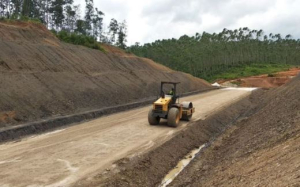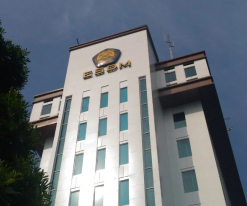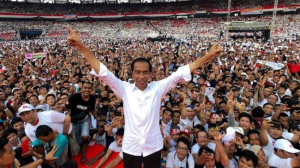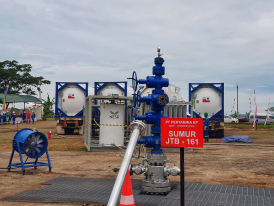Indonesia must lead in ESG transformation for nickel mining: Deputy MPR Speaker
Deputy Speaker of the People’s Consultative Assembly (MPR), Eddy Dwiyanto Soeparno, told the Indonesian ESG Forum 2025 that Environmental, Social, and Governance (ESG) compliance is no longer a voluntary measure, but a core requirement for global market access, especially in the nickel sector.
“The question is no longer whether we adopt ESG, but how quickly we can lead the transformation,” Eddy said while addressing the national-level forum attended by mining professionals, government officials, international investors, and sustainability experts in Jakarta on Monday, June 2, 2025.
He emphasized that with rising global standards, particularly from the European Union and major automakers, ESG credentials have become mandatory digital passports for doing business in resource-based industries.
Indonesia currently produces more than 54 percent of the world’s nickel supply and operates over 40 smelters, controlling around 74 percent of the world’s nickel pig iron output. Nickel exports soared from US$1.4 billion in 2020 to US$8 billion in 2024. However, Eddy warned that sustainability has become the new trade currency, citing the EU Battery Passport, which from 2024 requires carbon footprint transparency and by 2027 mandates 90 percent nickel recovery from battery waste.
“This implies that EU positions high ESG standards as a prerequisite for ongoing partnerships. Compliance is not optional − it is essential,” he said.
Despite Indonesia’s strategic position, Eddy raised concern over the environmental and social costs of the nickel boom. He cited high carbon intensity − with Indonesia emitting 70 tons of CO₂ per ton of nickel produced, compared to just 29 tons for best-in-class producers. He also noted a disturbing record of 38 smelter and mining accidents in 2024, involving 120 victims, including 32 fatalities.
Further environmental issues include deforestation, coastal pollution, and acid tailings, all of which threaten Indonesia’s credibility in the eyes of international buyers and investors.
While praising emerging efforts, such as the National Mid-Term Development Plan that prioritizes sustainable mining, and the Ministry of Energy and Mineral Resources' new industrial decarbonization roadmap, Eddy acknowledged that regulatory and technical frameworks remain insufficient. He noted weaknesses in Indonesia’s ESG enforcement, such as lack of mining-specific ESG guidelines, poor alignment with international standards, weak supply chain traceability and limited community engagement.
Constitutional mandate
Eddy cited the 1945 Constitution which mandates the importance of ESG compliance.
“Article 28 H guarantees the right of every citizen to clean and healthy environment. Article 33 (4) mandates that economic development must be based on sustainability,” he said.
He said further that the MPR and the House of Represenhtatives are prepared to initiate and support legislation to strengthen ESG governance, ensuring that sustainable principles take precedence over short-term profits or shareholder returns.
“Indonesia is already a powerhouse in nickel production. But to lead the world in sustainable mining, we must shift from aspiration to execution. The opportunity is within reach, but only if we act with urgency and unity,” he concluded.
Tag
Already have an account? Sign In
-
Start reading
Freemium
-
Monthly Subscription
20% OFF$29.75
$37.19/MonthCancel anytime
This offer is open to all new subscribers!
Subscribe now -
Yearly Subscription
33% OFF$228.13
$340.5/YearCancel anytime
This offer is open to all new subscribers!
Subscribe now







